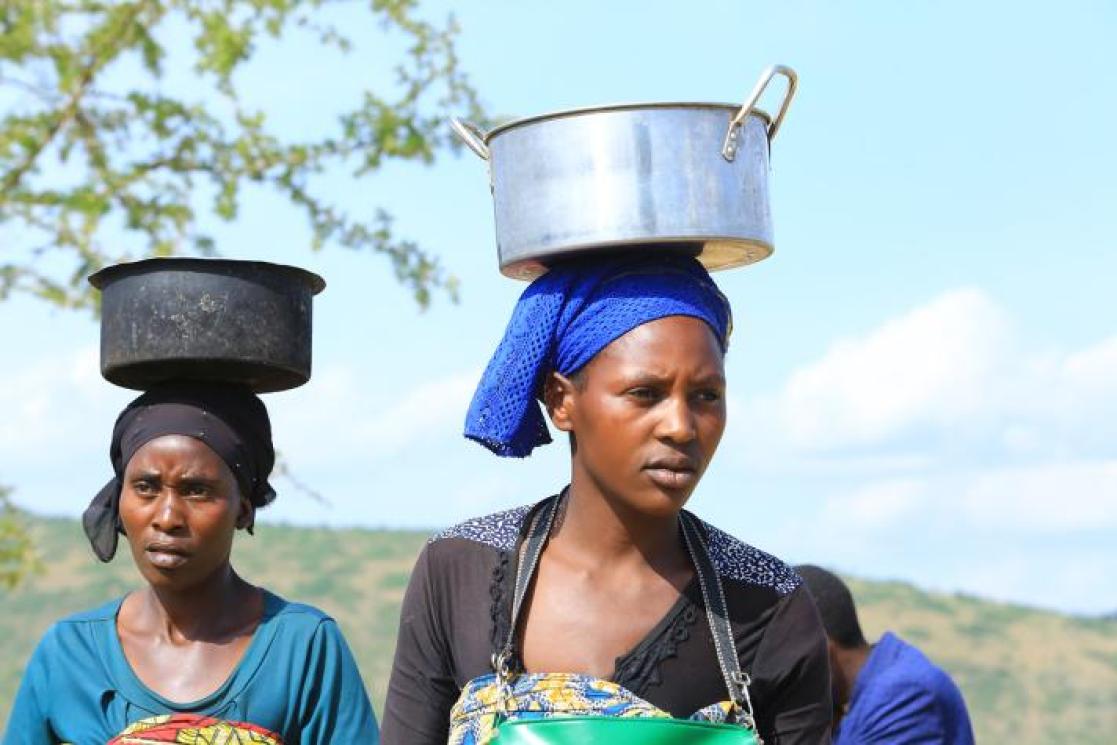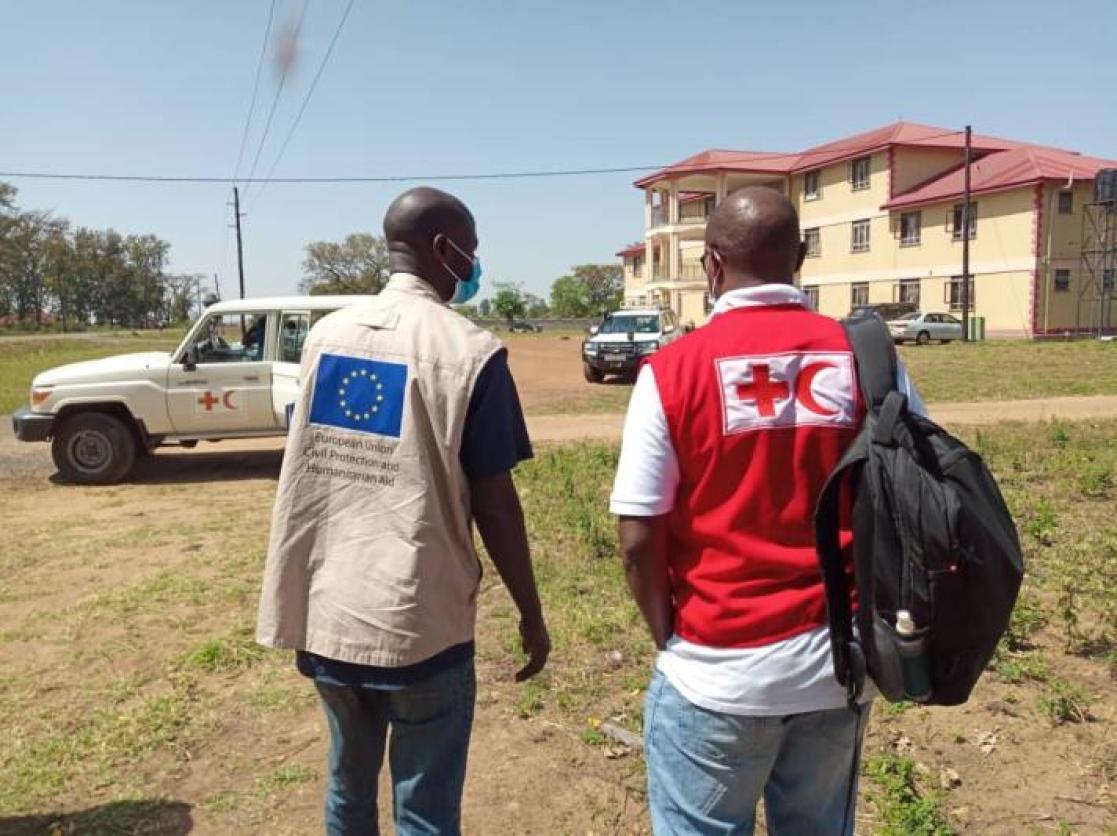RELATIONS WITH THE EU
The European Union and Uganda
Uganda is a landlocked country that has recently achieved considerable progress towards reducing the share of the population living in poverty. Nevertheless, it is still among the world’s group of Least Developed Countries. Through its development cooperation, the EU stands by Uganda to help address its key challenges, such as: consolidating democracy; removing gender, regional and other inequalities; extending the protection of basic human, social and economic rights to all Ugandans; and removing barriers to sustainable economic growth.
Conteúdo desta página
Political Relations
The EU Delegation to Uganda supports the country’s efforts to proceed with electoral reforms, defend human rights, promote democratic governance and fight corruption. The Delegation also supports the Ugandan government’s commitment to improving peace and security in the East Africa region.
Our Delegation assumes the local Presidency of the EU in Uganda. It means that we are tasked with speaking on behalf of the EU in Uganda, reflecting common EU positions and spearheading EU values on Human Rights, Governance and Democracy. We work closely with the 10 EU Member States with their own diplomatic presence in Uganda and play a supportive role as regards diplomatic and consular protection of the Union's citizens in Uganda.
Global Gateway
The Global Gateway is the EU’s positive offer of cooperation to our partner countries in support of their own strategic autonomy, aligning partner countries and EU interests, by scaling up high-quality geostrategic investments and promoting sustainable financing. Covering five main themes (digital, climate and energy, transport, health and education and research), it is implemented thought the Team Europe approach.
The Global Gateway strategy provides a holistic support to the Ugandan economy and society across the board by bringing the private and public sector together to invest in the four essential pillars of the economy of the future:
Investments in Female Entrepreneurs
The "Investing in Young Women-Led Entrepreneurs Business in Africa" initiative secures €40 million from 11 member states, EIB, EBRD, and AEDFI, supporting young entrepreneurs, fostering job creation, and promoting business growth in 8 Sub-Saharan countries. Additionally, a €50 million investment from the EU and Belgium targets enhancing employability, particularly for vulnerable youth and women in Uganda. It aims to improve access to green and decent employment opportunities.
Investments in Housing and Human Rights
The European Investment Bank and Housing Finance Bank of Uganda partnership, a €25 million EIB loan focusing on supporting private sector entities, especially SMEs. With a gender focus, at least half of the funds will benefit businesses owned or run by women or those serving women.
The "Advancing Respect for Business and Human Rights (ARBHR) in Uganda" project with Belgium, with a EUR 5 million budget, aims to reduce human rights abuses in Ugandan businesses, particularly those affecting women, through awareness-raising, civil society advocacy, and institutional capacity enhancement.
Investments in Digital Infrastructure
The European Investment Bank supports the construction of more than 500 new telecom towers in rural Uganda with a €25 million loan. TOWERCO will enhance mobile network coverage with the objective of ensuring last mile connectivity up to the most underserved regions, and enable access to 4G and 5G data services, as well as mobile money solutions. The goal is to promote digital empowerment and economic advancement in Uganda with sustainable infrastructure development, including the use of renewable energy sources like solar power.
Investments in Sustainable Agriculture
The START Facility, funded with €11.5 million, supports Ugandan agribusinesses through concessional loans, technical assistance grants, and credit guarantees. The €50 million EIB loan to Centenary Rural Development Bank (CERUDEB) benefits microentrepreneurs, especially women, aiming for nearly 2 million loans over seven years. The €12 million EU and Denmark investment in the Agricultural Business Initiative (ABI) aids 200,000 Ugandan farmers in improving climate resilience and productivity via matching grants and Business Development Services (BDS).
Humanitarian Support
In addition to the more medium to long-term development assistance, the EU also provides Uganda humanitarian aid through its Directorate-General for European Civil Protection and Humanitarian Aid Operations (DG-ECHO). ECHO and the EU Member States are the largest providers of humanitarian aid in the world.
Uganda hosts the largest refugee population in Africa and the 6th largest in the world. Nearly 60% of the over 1.5 million refugees are from South Sudan and over 30% from the Democratic Republic of the Congo. Uganda is constantly receiving new arrivals, with over 260,000 refugees arriving since January 2022. While Uganda is praised for its open-door policy, the large number of recent arrivals has put its progressive refugee policy under pressure.

© European Union, 2022 (photographer: Joseph Mary Buwule)
EU support is crucial to providing life-saving humanitarian assistance to refugees, as well as to host communities. The country is also vulnerable to natural hazards and epidemics, and the EU is supporting Uganda’s efforts to better anticipate and respond to these events.
Since 2017, the EU has supported humanitarian action in Uganda with more than €309 million.
For 2024, the EU has allocated €27.5 million for humanitarian aid there. Last year, in addition to the initial allocation of €30.5 million, the EU mobilised almost €5 million more to (i) accelerate local action in humanitarian and health crises and (ii) address food insecurity.

Uganda Red Cross Society
EU humanitarian funds help address the needs of over 1.5 million refugees, asylum seekers, and host communities as well as the needs of people exposed to natural hazards. It focuses on:
- providing rapid and effective emergency assistance to recently arrived refugees,
- improving access to basic services in refugee settlements,
- anticipating and responding to disasters.
EU funding makes a major contribution to the provision of (i) protection and multi-purpose cash transfers, (ii) access to improved primary healthcare and nutrition, (iii) safe water and sanitation, (iv) education to refugees and their host communities, and (v) disaster preparedness and response.
Development Cooperation
The Multiannual Indicative Programme (MIP) for Uganda for 2021-2024 amounts to €375 million.

Oxfam: Photo by Emmanuel Museruka
Priority area 1: ‘Green and climate Transition’ contributes to better conservation, restoration and protection of Uganda’s natural resources and biodiversity. Furthermore, it promotes sustainable development of the forestry sector, supports Uganda in improving its disaster risk management approach, develops financing for climate action and effectively contributes to streamlining the European Green Deal in sustainable urban and peri-urban development for Uganda's move towards green, inclusive, smart and productive cities.
Priority area 2: ‘Promoting sustainable and inclusive Growth and Jobs’ focuses on the support of the productive sectors’ sustainable energy, transport and digital connectivity while promoting employment.
Priority area 3: ’Promoting Democratic Governance and Social Inclusion’ contributes toward a strengthened democracy and human rights, where institutions can be effective and accountable with increased inclusive delivery of basic social services.
Uganda’s annual financing decision for 2021 is already adopted. The action plan shall include the following actions: Civil Society in Uganda Support Programme and supporting sustainable investments in the agricultural sector.
Good Governance
Our work here involves:
- Strengthening state functions relating to financial, democratic and social accountability.
- Bolstering the oversight and control functions of the government executive.
- Improving access to justice, protecting human rights and democracy, while strengthening investigative and legal institutions.
